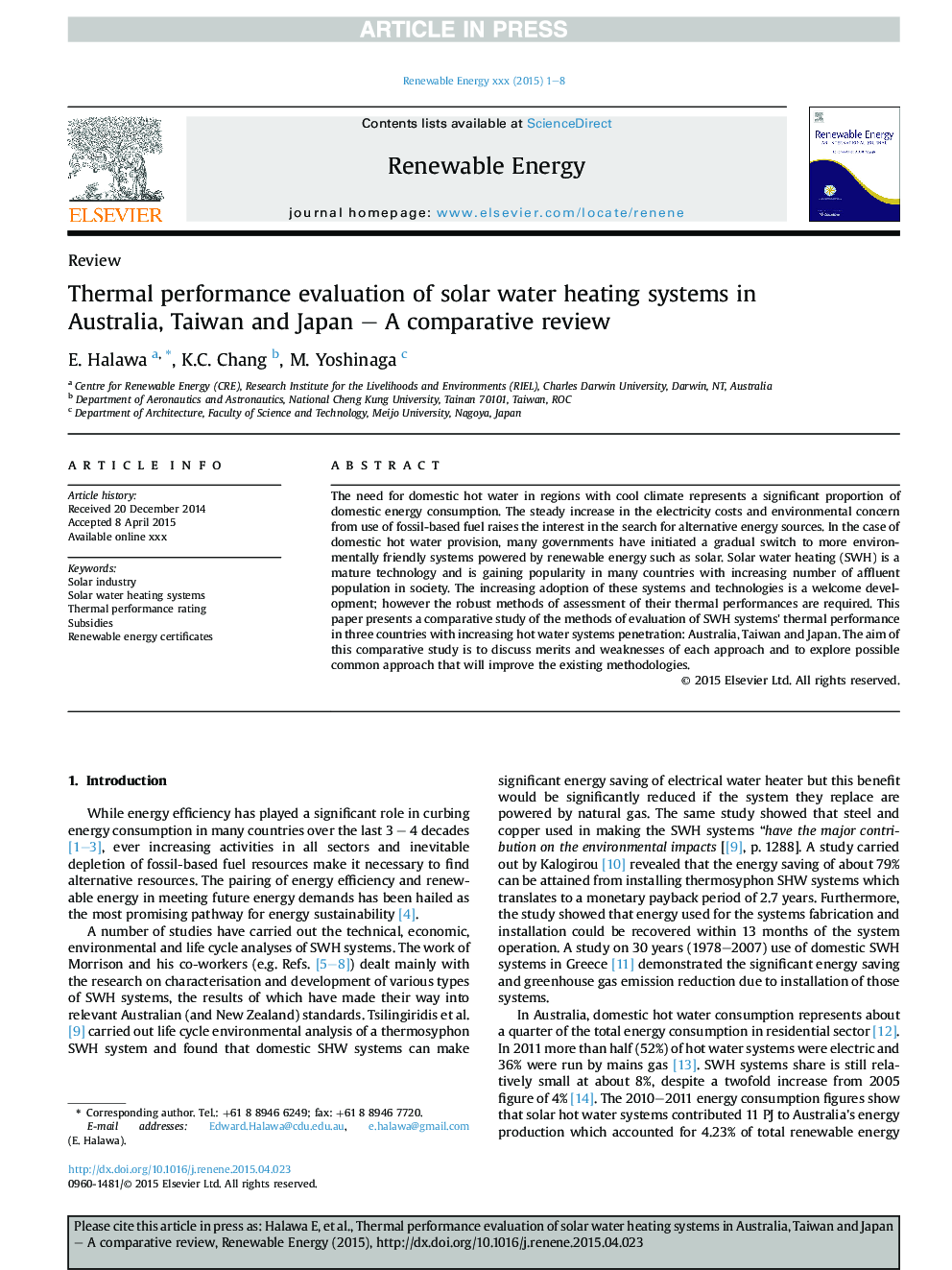| Article ID | Journal | Published Year | Pages | File Type |
|---|---|---|---|---|
| 6766541 | Renewable Energy | 2015 | 8 Pages |
Abstract
The need for domestic hot water in regions with cool climate represents a significant proportion of domestic energy consumption. The steady increase in the electricity costs and environmental concern from use of fossil-based fuel raises the interest in the search for alternative energy sources. In the case of domestic hot water provision, many governments have initiated a gradual switch to more environmentally friendly systems powered by renewable energy such as solar. Solar water heating (SWH) is a mature technology and is gaining popularity in many countries with increasing number of affluent population in society. The increasing adoption of these systems and technologies is a welcome development; however the robust methods of assessment of their thermal performances are required. This paper presents a comparative study of the methods of evaluation of SWH systems' thermal performance in three countries with increasing hot water systems penetration: Australia, Taiwan and Japan. The aim of this comparative study is to discuss merits and weaknesses of each approach and to explore possible common approach that will improve the existing methodologies.
Related Topics
Physical Sciences and Engineering
Energy
Renewable Energy, Sustainability and the Environment
Authors
E. Halawa, K.C. Chang, M. Yoshinaga,
